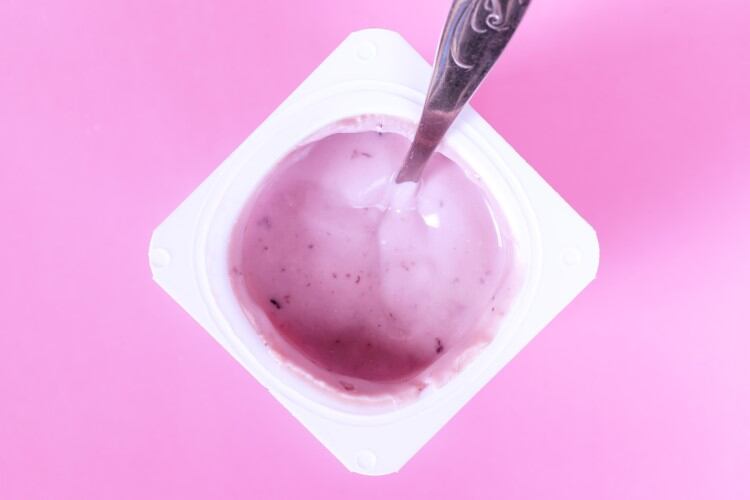The agency this month determined there is “limited evidence for a relationship between yogurt and risk reduction of type 2 diabetes” after reviewing a petition submitted by Danone North America in 2018, in which the yogurt maker cited research including 300,000 individuals that shows people who consumed more yogurt had less risk of developing diabetes.
While the observational data does not show a causal connection nor reveal a specific mechanism of action, FDA determined there was enough “credible evidence” to justify enforcement discretion for two qualified health claims accompanied by a disclaimer that accurately describes the level of scientific evidence.
These include:
- “Eating yogurt regularly, at least 2 cups (3 servings) per week, may reduce the risk of type 2 diabetes. FDA has concluded that there is limited information supporting this claim.”
- “Eating yogurt regularly, at least 2 cups (3 servings) per week, may reduce the risk o type 2 diabetes according to limited scientific evidence.”
Exploring yogurt’s ‘untapped’ potential health benefits
“Our goal, of course, is to positively impact the health of consumers and help provide really easy, simple information that consumers can incorporate to try to reduce their risk of this really serious diet-related disease. And we are really pleased that the feedback from FDA aligned with our interpretation of the data,” Amanda Blechman, registered dietitian and director of health and scientific affairs at Danone North America, told FoodNavigator-USA.
She added, “Our mission is bringing healthy food to as many people as possible, and as one of the largest yogurt makers in the US and across the glob we know that yogurt is accessible and nutrient dense. And so, when we saw this research growing and becoming compelling, we felt and obligation … to dig deeper and really explore the potential health benefits that had yet been untapped.”
The International Dairy Foods Association echoed Danone North America’s sentiment and, in a statement encouraged members of the 2025 Dietary Guidelines Advisory Committee to closely consider FDA’s decision, “alongside the growing body of science demonstrating the health benefits of consuming dairy products at all fat levels, which shows these products are not associated with higher risk of negative health outcomes, including obesity, diabetes and heart disease.”
FDA acknowledges stakeholder concerns about added sugar in yogurt
Comments submitted to FDA during the 60-day comment period when the agency first posted Danone North America’s petition on the Regulations.gov website in April 2019 were split in their support for and against the request for the qualified health claim.
Four of the comments generally supported the claim, characterizing the studies submitted by Danone North America as high and moderate quality, and noting that yogurt is a nutrient dense food high in protein, calcium, potassium, and other beneficial nutrients.
But three of the comments opposed the claim, including one commentor who argued the claim could increase the prevalence of type 2 diabetes as it would encourage increased consumption of yogurts, including those that are high in added sugar.
Given one in three US adults has prediabetes, FDA paraphrased the commentor as saying, “any step that may encourage consumption of foods high in added sugars must be weighed carefully against the considerable risk that it will increase the risk of type 2 diabetes.”
How far will FDA’s enforcement discretion extend?
The agency appears to have taken this assessment to heart, even as it plans to exercise enforcement discretion for the claim.
FDA explained that added sugar in yogurt would not automatically disqualify the use of the qualified health claims in part because the petition and research demonstrated a connection between the reduced risk of type 2 diabetes and the consumption of yogurt as a whole food, rather than any single nutrient or compound in yogurt, including fat and sugar content.
It added that because FDA had not previously set a disqualifying level for added sugar in yogurt, sugar content could not be an enforcement discretion factor for the claim at this time.
However, in the response to Danone North America’s petition, FDA wrote it is “concerned that the use of a qualified health claim on yogurts that contain a significant amount of added sugars could contribute to empty calories in the diet,” and that the current Dietary Guidelines for Americans “recommend limiting added sugars to less than 10% of total calories.”
It adds that because Americans often exceed recommended limits on added sugars, “and some yogurts on the market are high in added sugars, FDA encourages careful consideration of whether to use the claim on products that could contribute significant amounts of added sugars to the diet.”



